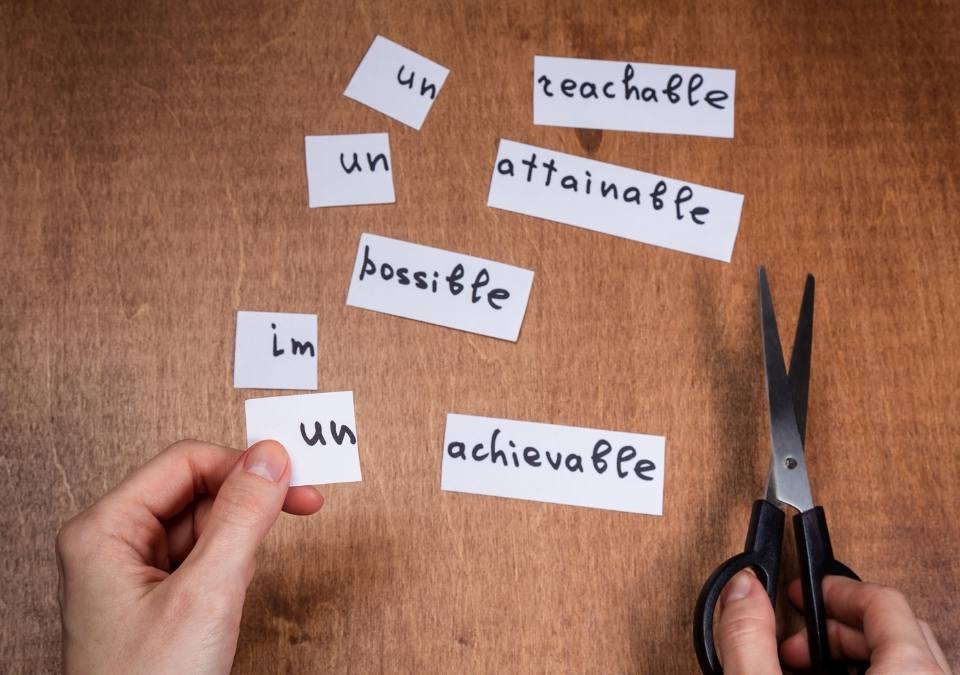We all get knock-backs occasionally. As the old saying goes, life is not all wine and roses (or beer and skittles for that matter).
At these times, it can be a natural tendency for some to slip into a negative mode of thinking and self-talk: “Why does bad stuff always happen to me?”, “I made a mess of that”, “My life sucks”, “I’m a failure/imposter”,”I can’t do anything right” etc…
Our negative thinking and self-talk can sometimes take hold and facilitate a downward spiral, from which we find it difficult to emerge. But emerge we must, for our own health and wellbeing, and in order to become the best versions of ourselves.
So just how do we stop the spiral then, and get ourselves back to a position where we’re thinking and chatting with ourselves more constructively, so that we’re better positioned to take positive, forward-focused action?
I’ve personally found the following simple strategies to be helpful over the years, as have a number of clients I’ve shared them with. No one deserves to be in the doldrums for too long, so I hope you also find them helpful:.
1. Have a “good stuff” folder
While not-so-good things happen from time to time, there are thankfully plenty of good things that happen as well (we get some good feedback from a colleague or client, or someone thanks us for the difference we’ve made, for example). Having reminders of the good things that happen close to hand when we need a bit of a pick-me-up can be useful.
I personally have an email folder (literally labelled “Good Stuff” – yes, I’m very creative) into which I drag positive comments from clients that I/we occasionally receive. If I’m having a bit of a downer of a day, I’ll simply dip in to my “Good Stuff” folder, remind myself why we do what we do and the positive impact that we’ve made in the past. I find it picks me up pretty quickly, sorts me out and gets me ready to tackle the challenges and opportunities of the day.
2. Set aside some “Stewing Time”
Most people occasionally experience challenging feelings such as deep frustration or anger. While we sometimes tell ourselves that we need to stop feeling that way, the reality is that such feelings are a perfectly natural part of what makes us human. That said, such feelings can sometimes get in the way of us getting on with things. We get “stuck” and remain frustrated or angry to the point that we can’t move on.
Simply telling ourselves to not be frustrated or angry to some extent invalidates our natural feelings, and as a result it rarely works. “Stewing Time” is as simple as recognizing the feeling you are experiencing and literally setting yourself a time limit in which you give yourself permission to experience that feeling. Yes, it’s corny, but it could involve saying to yourself, for example, “I’m really angry about what that person said to me. While it’s OK to feel that way for awhile, I’ve got a heap of other stuff to do. I’m going to give myself permission to “stew” on it until 4pm, but then I need to accept that it happened, I can’t do anything about it, and let it go”.
3. Consider what you would tell a friend in the same situation
This is probably my favourite strategy for dealing with negative self-talk.
The reality is that most of us are much more critical of ourselves than we are of say our family and friends. If a friend or family member suffers a setback and confides in us (eg. “something at work didn’t go so well”), more often than not most of us are very consoling and helpful. We say things like “It’s ok, we all make mistakes from time to time. Think of all the good work you’ve been doing. Try to see it as a learning opportunity, acknowledge it but then move on” etc….
Put the shoe on the other foot though, where we’ve perhaps personally made a mistake and listen to the critical self-talk flow… “I’m hopeless, I knew I’d stuff it up, I can’t do anything properly, I’m going to get the sack!” etc…
Try to identify those occasions when you are engaging in this sort of negative self-talk, then slow down, stop , take a few deep breaths and think about how you would chat with a friend in the same situation. You may find that it helps you be somewhat kinder to yourself, and enables you to pick yourself up a bit more quickly than might otherwise be the case.
How about you? Do you have any strategies of your own that you’d be willing to share? I’d love to hear them – contact me via [email protected].
Of course, also contact us if you’d like details of our range of Personal Effectiveness and Leadership Development programs.

